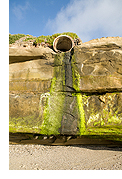|
||||||||||||||
Questions & Discussions The
importance of questions and questioning for both staff and students is touched
upon in the pedagogy section, but merits re-emphasis. Indeed counter to
the usual approach, teachers might consider providing more answers and asking
students for the questions. The difficulty of designing questions to elicit
answers of the sort required is well illustrated in the many poor questionnaires
we are faced with, and again through critical thinking and ICTs, groups
may be able to extract more sensible and reliable responses in a variety
of contexts e.g. The
importance of questions and questioning for both staff and students is touched
upon in the pedagogy section, but merits re-emphasis. Indeed counter to
the usual approach, teachers might consider providing more answers and asking
students for the questions. The difficulty of designing questions to elicit
answers of the sort required is well illustrated in the many poor questionnaires
we are faced with, and again through critical thinking and ICTs, groups
may be able to extract more sensible and reliable responses in a variety
of contexts e.g.
Choose a brief statement from the executive summary report of the Stern Review to corroborate or refute. Cite the sources you use and say why you believe these to be authoritative e.g.
|
||||||